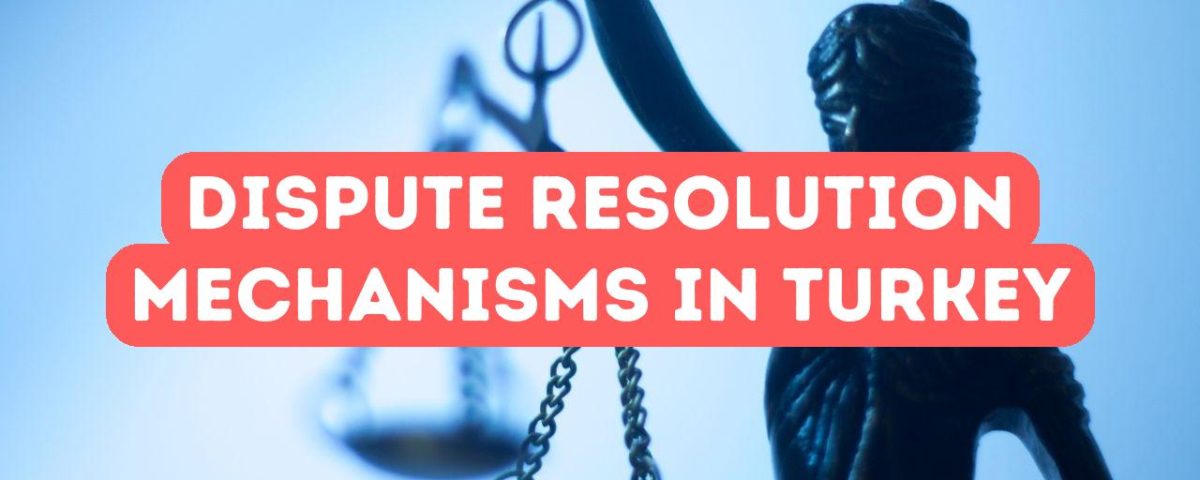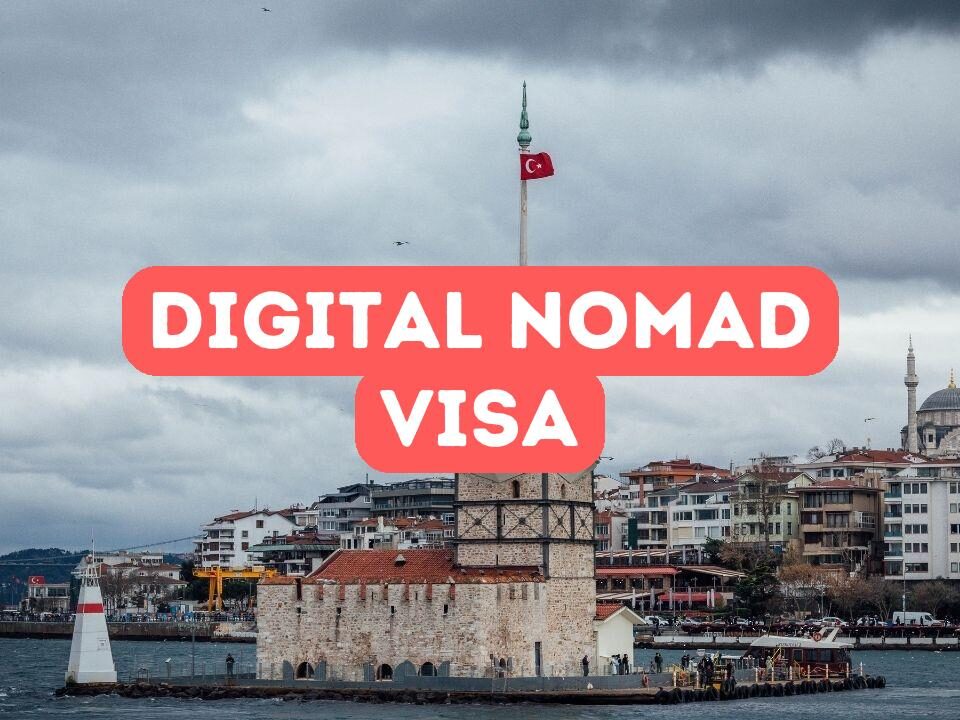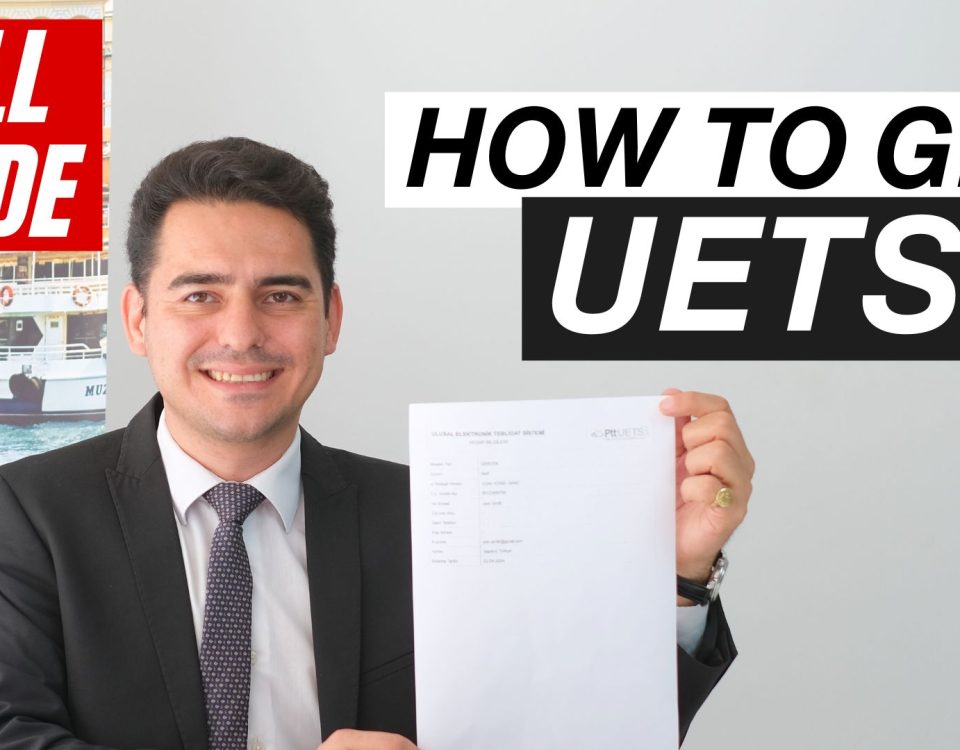Dispute Resolution Mechanisms in Turkey: Options for Residents

Unexpected Costs of Living as a Resident in Turkey
March 28, 2024
Culture Shock for New Residents Staying In Istanbul
March 28, 2024Turkey offers a multifaceted legal framework for dispute resolution that provides residents with a range of options to suit varying circumstances. In navigating the complexities of conflicts, individuals and businesses can pursue traditional court litigation, or turn to alternative methods such as mediation, arbitration, and reconciliation, each rooted in the country’s commitment to efficient and equitable outcomes. The Turkish dispute resolution system is designed to uphold the rule of law while integrating international standards and practices, making it responsive to the growing demands of a globalizing economy. This convergence of traditional and innovative mechanisms ensures that residents have access to timely and just settlements, enhancing legal certainty and fostering a conducive environment for personal and economic development. As we delve into the various dispute resolution pathways available within Turkey, it becomes clear that the system is geared toward balancing accessibility, efficiency, and fairness.
Alternative Avenues for Conflict Settlement in Turkey
Within the contours of Turkey’s judicial landscape, alternative avenues for conflict settlement have gained prominence, offering residents the solace of resolving disputes without resorting to the formalities of courts. Mediation, in particular, stands out as an increasingly popular method enshrined in Turkish law, compelling parties to consider this conciliatory approach before litigation in certain civil disputes. This pre-litigation requirement embodies Turkey’s proactive stance in diffusing conflicts amicably and expeditiously. Arbitration, another pivotal alternative, is frequently utilized in commercial disputes, with Istanbul establishing itself as a regional hub for international arbitration. Additionally, the relatively recent Istanbul Arbitration Centre (ISTAC) provides a modern and efficient arbitration infrastructure aligned with global standards. For those seeking less formal routes, conciliation and negotiation mechanisms exist within various sectors, structured to facilitate a collaborative dialogue and a mutually satisfying resolution, thus reducing the burden on the judicial system while preserving relationships.
Moreover, the Turkish government has incorporated the principles of Alternative Dispute Resolution (ADR) into administrative procedures, expanding its application beyond the private sector. Governing bodies and regulatory agencies often recommend or require ADR processes as a preliminary step before administrative litigation can proceed. This integrative approach within the public sector serves to alleviate the workload of administrative courts and promotes a faster resolution of disputes involving public services or compliance with regulations. By employing reconciliation committees and ombudsmen, the Turkish state underscores its dedication to resolving disputes through dialogue and compromise. This ethos is further reflected in consumer protection laws, where arbitration committees for consumer problems play a vital role in adjudicating consumer disputes swiftly and without cost, providing an essential service for individual rights and interests in a market-oriented economy.
The landscape of Turkey’s alternative dispute resolution is not only diverse but also permeable, offering pathways that intersect with the broader European and international ADR frameworks. The Turkish Mediation Law on Civil Disputes, for instance, aligns with EU directives, facilitating transnational commercial dispute resolution and offering assurance to foreign investors and trading partners. Meanwhile, the encouragement of ADR in environmental issues, a domain where concerns frequently cross borders, underscores Turkey’s commitment to global standards of sustainable development and public international law. By integrating ADR into its legal tapestry, Turkey not only streamlines its own judicial process but also promotes a culture of dialogue and understanding that transcends national boundaries, contributing to international legal cooperation and enhancing the enforceability of cross-border resolutions, a testament to the country’s forward-looking approach in handling disputes both domestically and internationally.
Adjudicating Disputes in the Turkish Legal Landscape
In the Turkish legal landscape, adjudicating disputes through the courts remains the most traditional pathway. The judicial system is intricate, comprising hierarchical levels from first instance courts to the Court of Cassation, which serves as the highest court of appeals. Cases are funneled through this structure based on their nature, with specialized courts addressing issues ranging from family matters to commercial disputes. Litigation in Turkey is characterized by formal procedures and substantive investigation, where cases are argued before judges whose roles embody both evaluating evidence and applying the law. Despite the potential for lengthy proceedings, the court system is underpinned by principles of thorough judicial review and the right to a fair trial, aiming to render just decisions that are enforceable under Turkish law. This avenue, while ostensibly slower, provides a comprehensive and binding resolution to disputes, reflecting the country’s legalistic tradition and assuring parties that their case will be heard in a court of law.
However, navigating the court system in Turkey can often be challenging, particularly for those unfamiliar with its intricacies. Recognizing this, the Turkish government has implemented several reforms to streamline judicial processes and reduce backlogs. For instance, mandatory mediation was introduced for labor disputes as a prerequisite to litigation, successfully diverting numerous cases out of the court system. Additionally, procedural advancements, like the implementation of a centralized e-justice system, have enhanced efficiency. These efforts are mirrored by the support mechanisms facilitated by the Ministry of Justice, offering legal aid services to ensure that all residents have the opportunity to pursue their rights. Hence, while the judicial path is comprehensive, it is also continually evolving to accommodate the dynamic nature of disputes and the needs of the populace, striving to maintain robust access to justice in a system that values legal tradition yet embraces contemporary reforms.
Beyond the formalities of the courtroom, the Turkish legal system endorses alternative dispute resolution (ADR) methods, aligning itself with global trends that favor less adversarial solutions. Instruments like arbitration and mediation are increasingly prevalent, with Istanbul establishing itself as an international hub for these services. By offering ADR, Turkey caters to those seeking a more confidential and tailored dispute resolution process, often resulting in faster and potentially less costly outcomes. These methods, embodied in the Istanbul Arbitration Centre (ISTAC), allow for specialized arbitrators and mediators to resolve disputes in line with internationally recognized standards, providing an attractive option for both domestic and foreign parties. With legislative backing and a growing recognition in the business community, ADR mechanisms have become integral to the Turkish dispute resolution tapestry, ensuring that the system not only respects but adapts to the preferences and requirements of its users in an ever-globalizing marketplace.
Mediation and Arbitration Practices in Turkey
Mediation and arbitration have gained prominence in Turkey as effective alternative dispute resolution (ADR) options, aiming to alleviate the burden on the judiciary and provide expedited outcomes. The Turkish mediation system is grounded in voluntary participation and confidentiality, with a legal framework bolstered by the Law on Mediation in Civil Disputes, which encourages disputing parties to settle their conflicts outside of conventional courtrooms. Mediators in Turkey are certified professionals who facilitate negotiation and aid mutual consensus without imposing judgments. On the arbitration front, Turkey adopted the International Arbitration Law, closely mirroring the UNCITRAL Model Law, to manage both domestic and international commercial disputes. This has fostered a pro-arbitration environment, particularly in Istanbul, where the Istanbul Arbitration Centre (ISTAC) offers an institutionalised platform that provides efficient and specialized resolution services that have international credibility and are recognized for their adherence to global standards.
Within the sphere of arbitration, various sectors in Turkey, especially construction, energy, and finance, are actively integrating arbitration clauses into their contracts, recognizing its swiftness and confidentiality as pivotal for business efficacy. Crucially, both Turkish citizens and foreign investors have the right to seek arbitration in Turkey, which is in line with the country’s aim to be an arbitration-friendly jurisdiction. The arbitration process, typified by shorter time frames and specialized expertise, is particularly attractive for cross-border disputes, with the ISTAC providing a modern and neutral venue conducive to international commercial principles. Furthermore, Turkey’s adoption of the New York Convention on the Recognition and Enforcement of Foreign Arbitral Awards ensures that decisions rendered in Turkey are enforceable in over 160 countries, thus magnifying the appeal of Turkish arbitration among global commercial entities seeking dependable and enforceable dispute resolution.
Completing the landscape of alternative dispute resolution in Turkey, mediation similarly encapsulates the shift towards a more conciliatory and expedient approach to conflicts. The process is generally less formal and more adaptable to the needs of the disputing parties compared to arbitration or court litigation. Turkey’s Mediation Law for Civil Disputes encourages the resolution of disputes through dialogue and compromise before they intensify to litigation. This emphasis on mediation reflects a broader trend in international dispute resolution that values the preservation of business relationships and the autonomy of parties in crafting their own agreements. Moreover, this practice is not only limited to private disputes; certain types of criminal cases have also been incorporated under Turkey’s Conditional Release and Postponement of Sentence on the Basis of Mediation, further expanding the scope and relevance of this mode of dispute resolution. As a result, mediation is gaining traction, symbolizing a diverse and adaptive dispute resolution arena that complements the traditional judicial mechanisms within the country.




